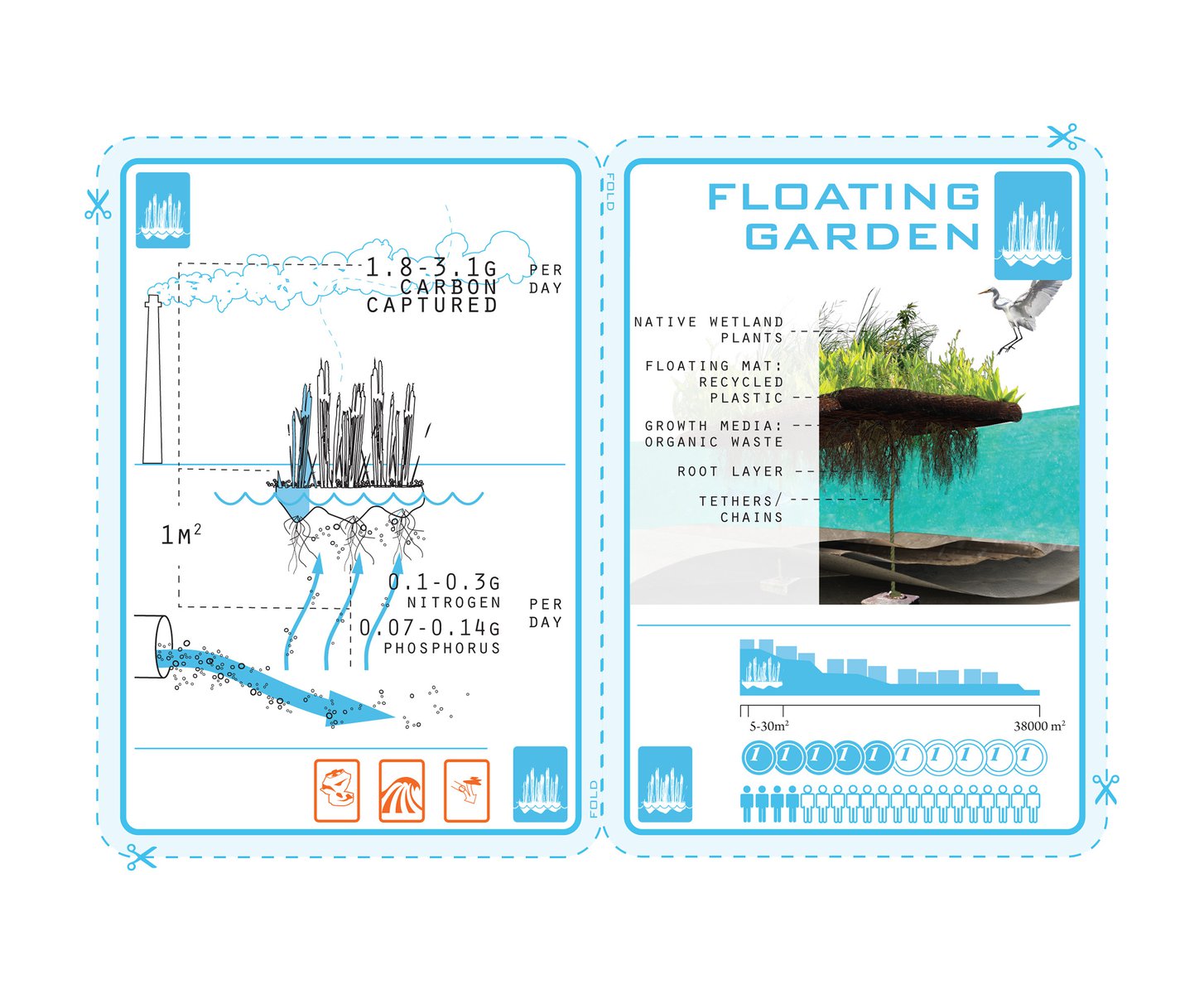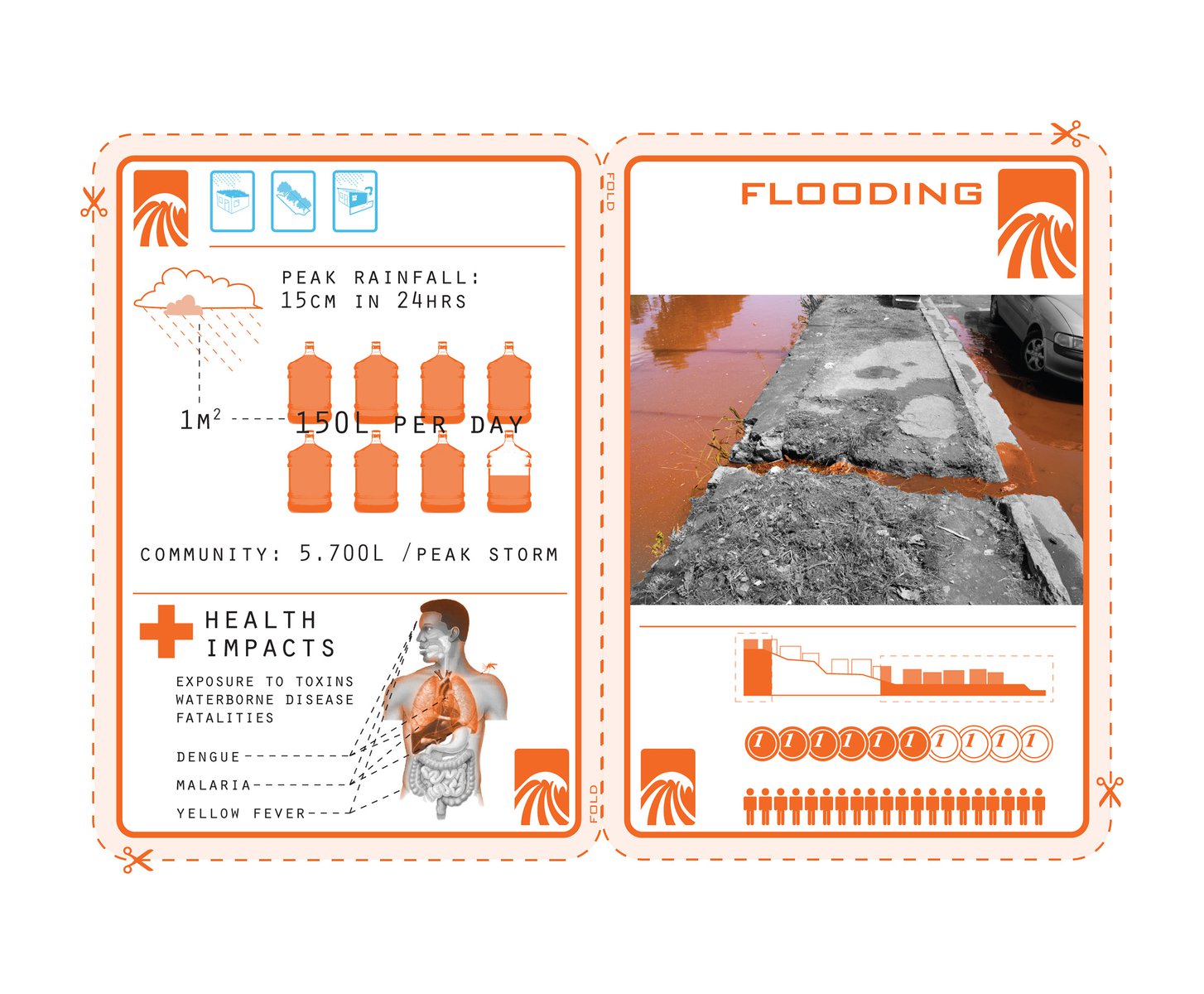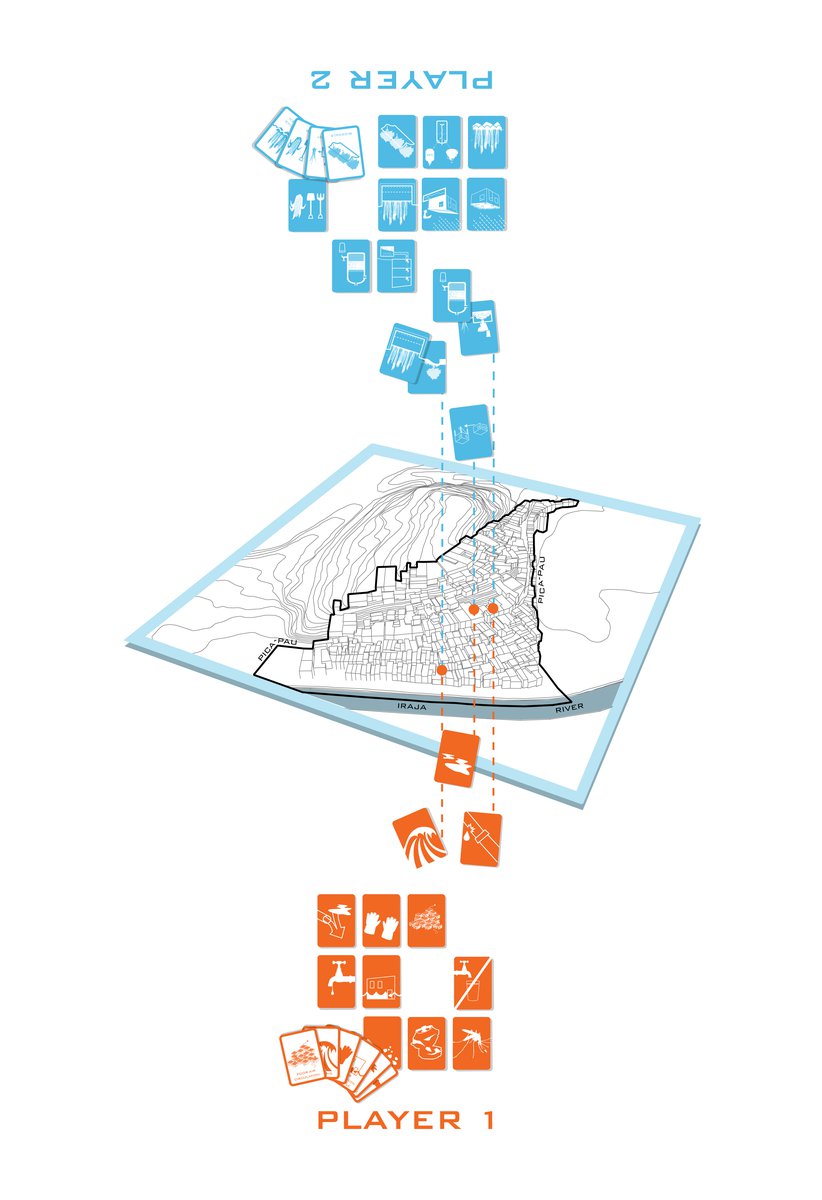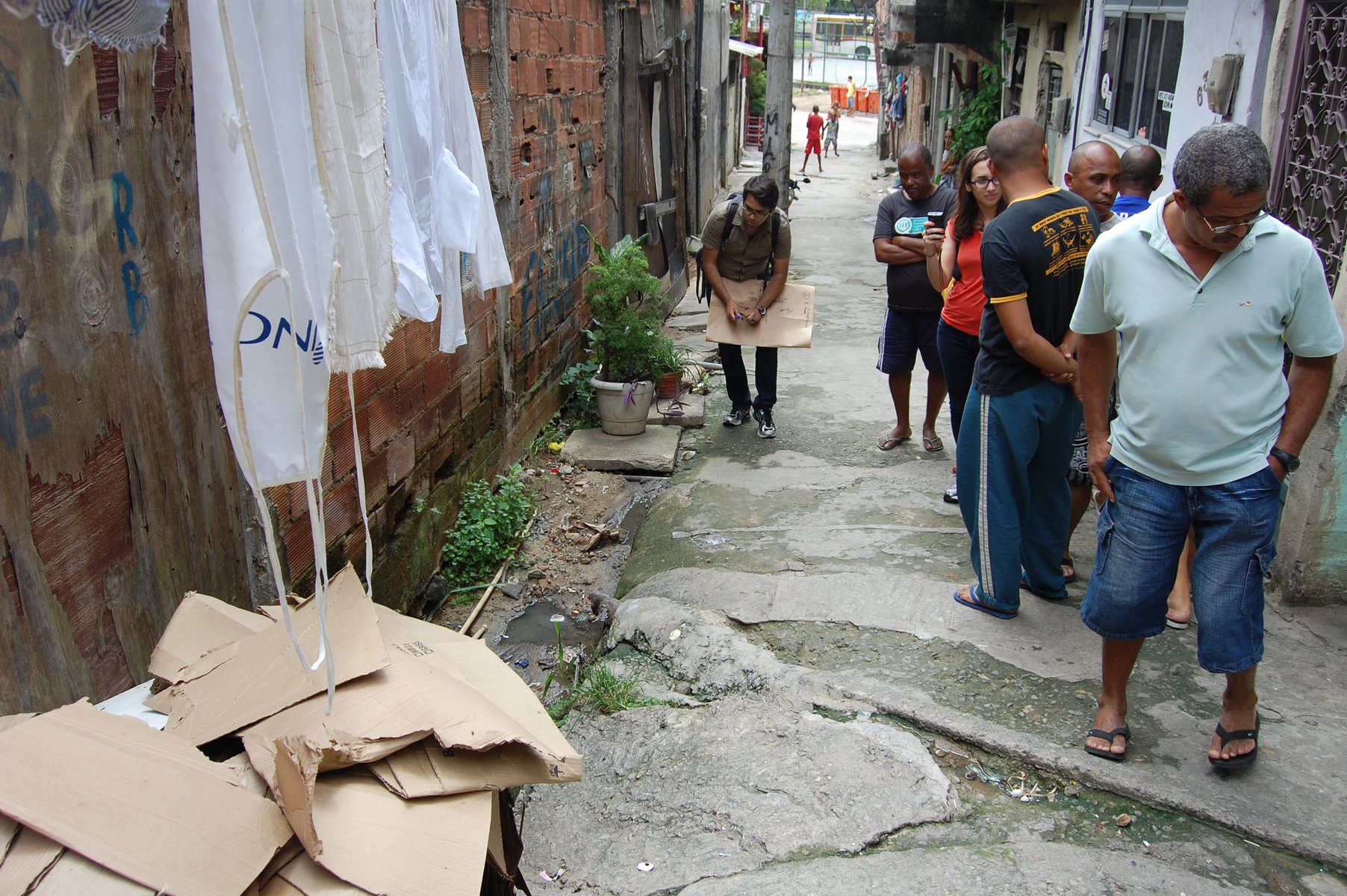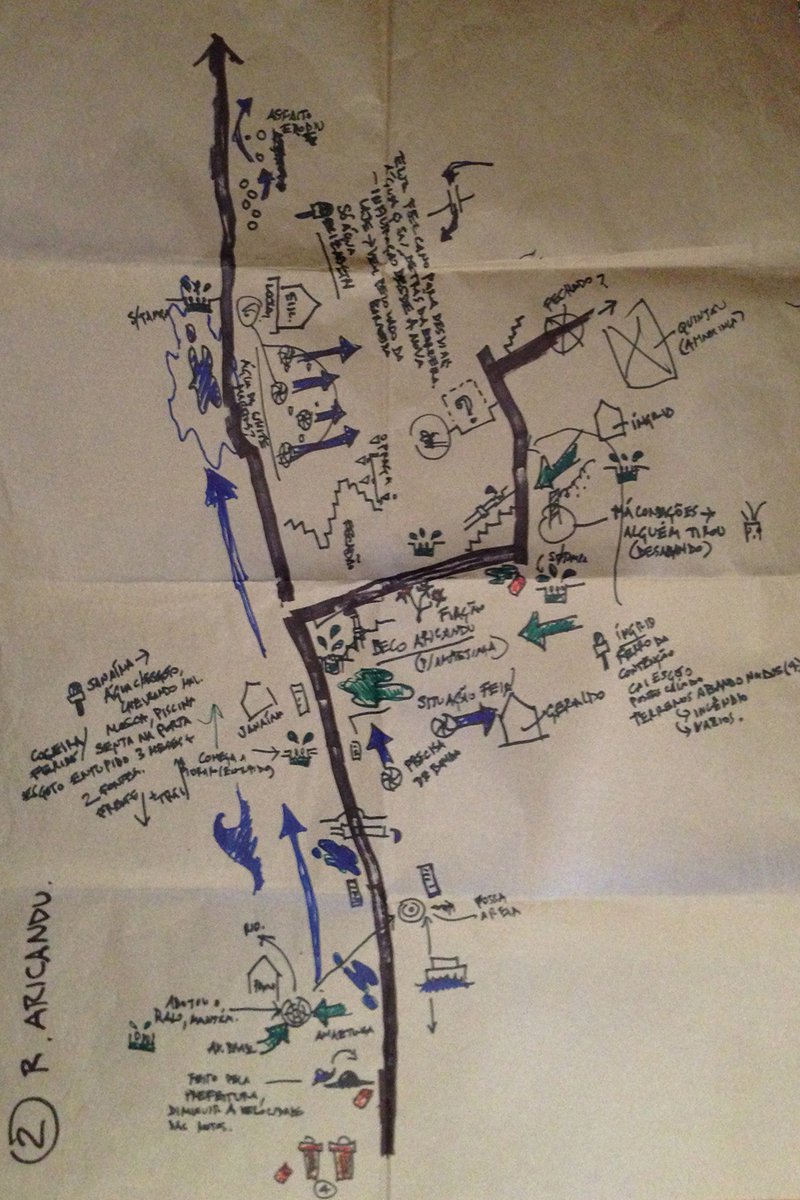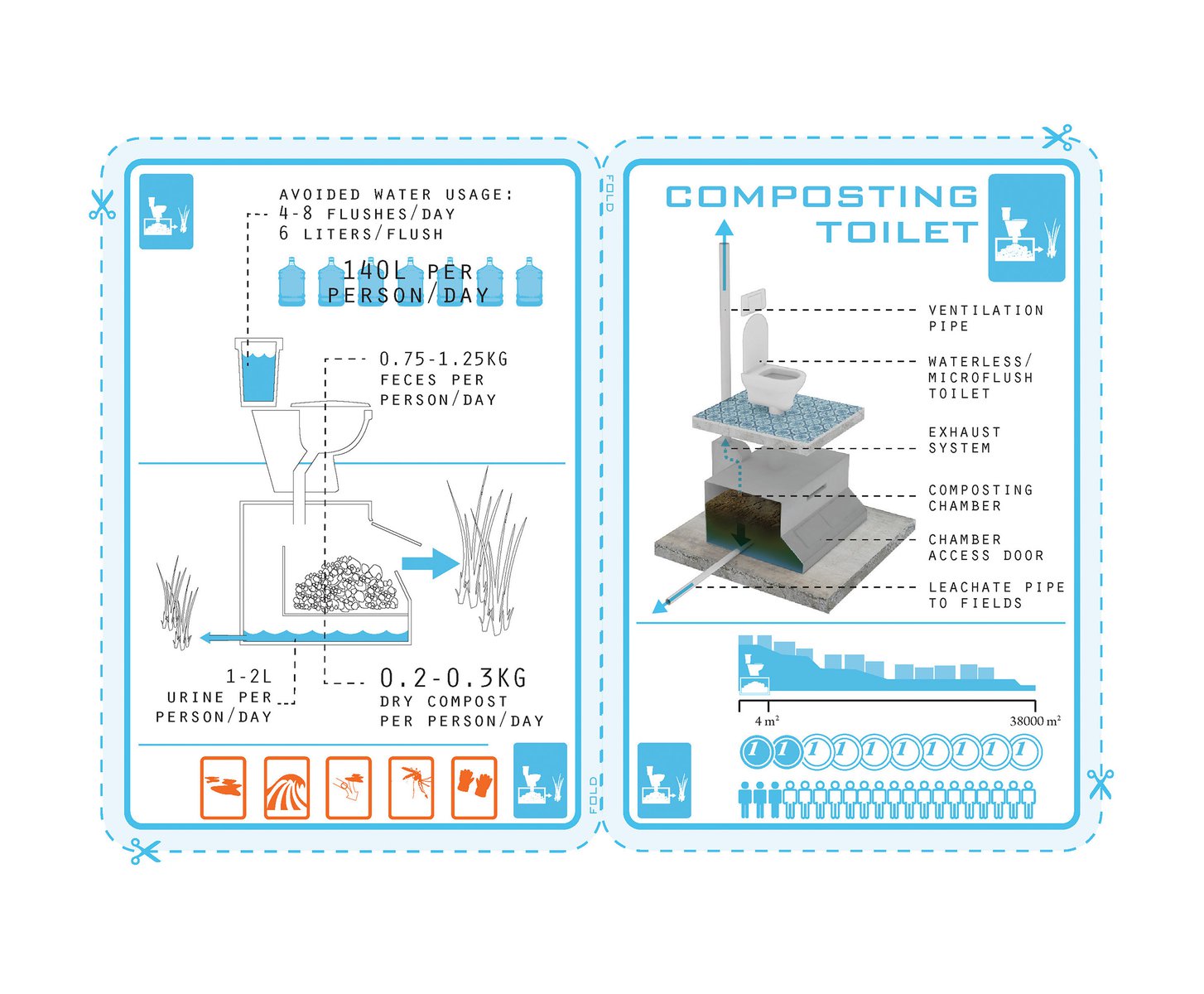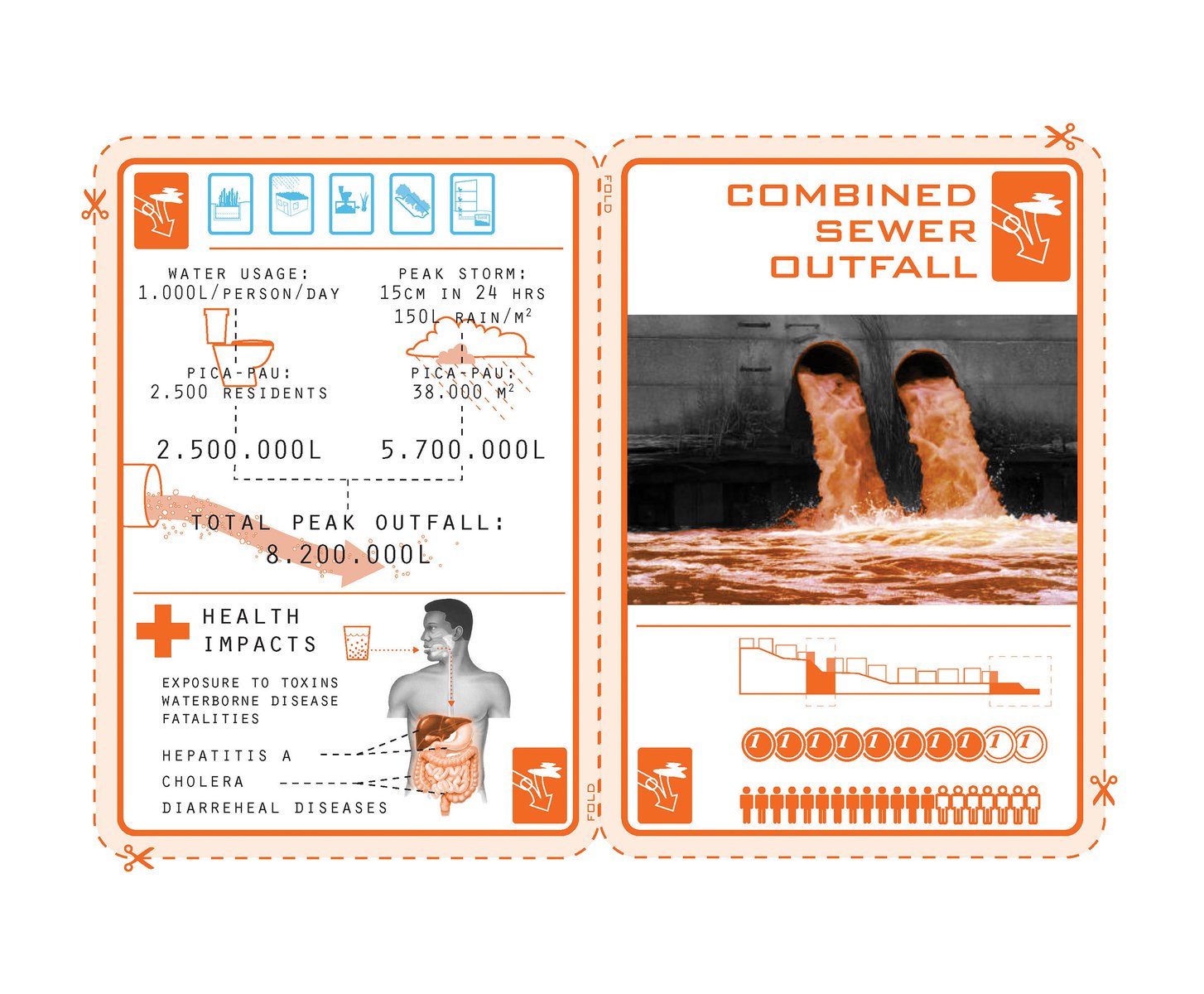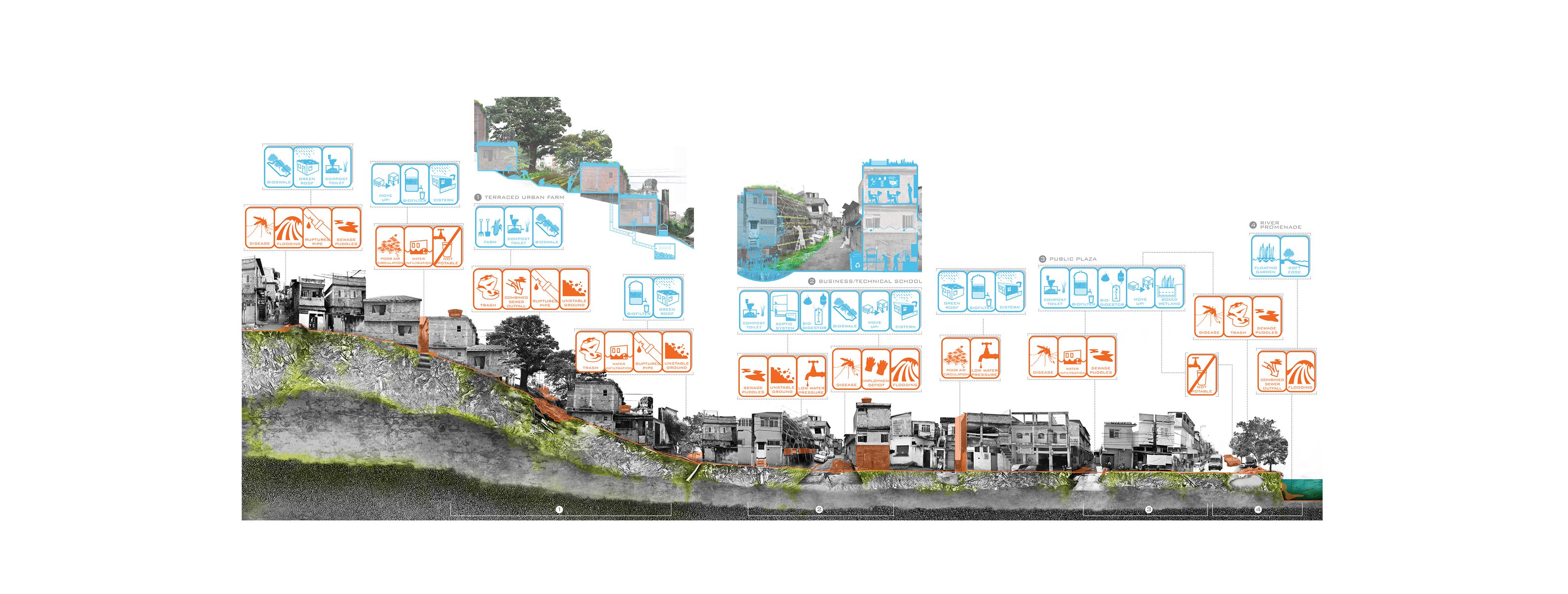No urban setting exemplifies current global human condition more than Rio de Janeiro’s informal communities, or favelas. Self-built and often ignored by government, these communities have been identified by their environmental and sociopolitical deficits.
With favela Pica-Pau as a testing ground, a Participatory Sustainable Infrastructure process considers community and ecosystem at each project stage. Investigative exercises including a Transect (mapping) Walk and Community Visioning Workshop have been held to collect community-sourced data. Consultants adapt this data to available technologies; DIY methodology and flexibility of implementation leverage the informality of a favela towards sustainable solutions.
A set of Design Playing Cards profiles each infrastructural deficit and proposed systems, capitalizing on the modularity of sustainable technology to foster interaction between community and consultants.

